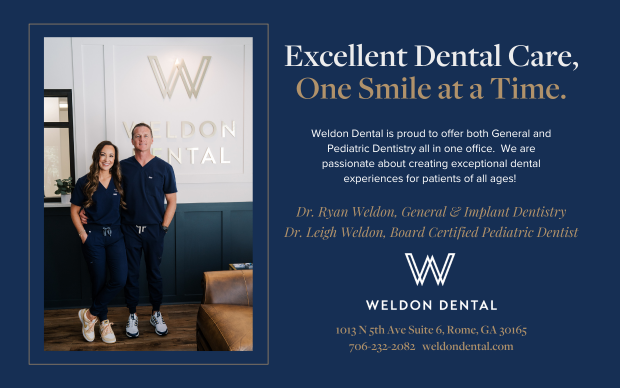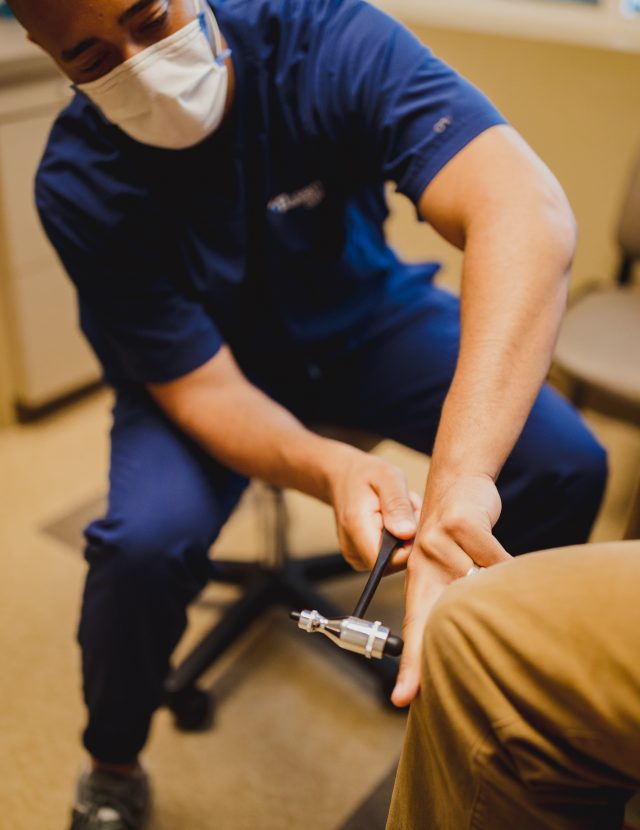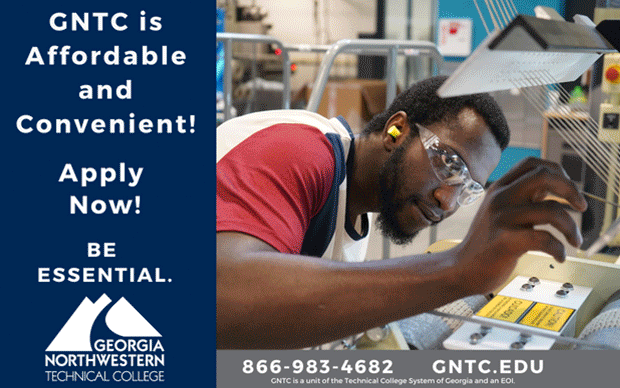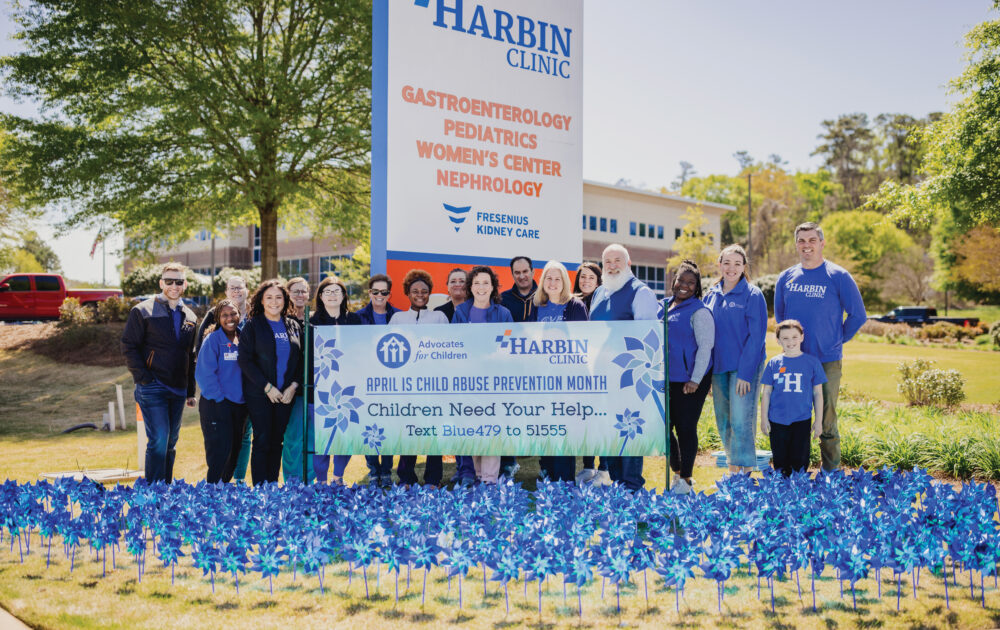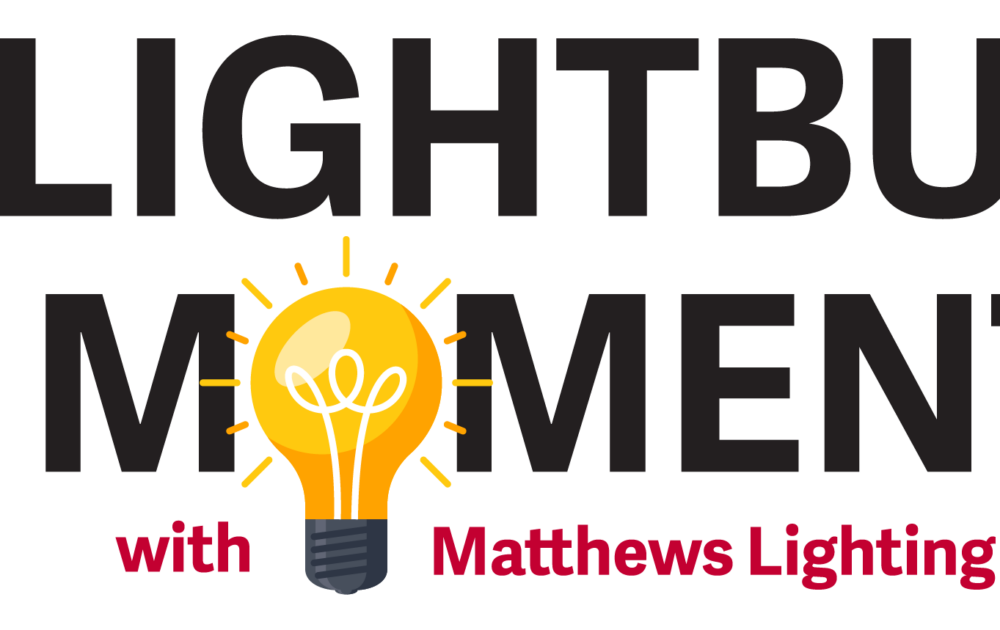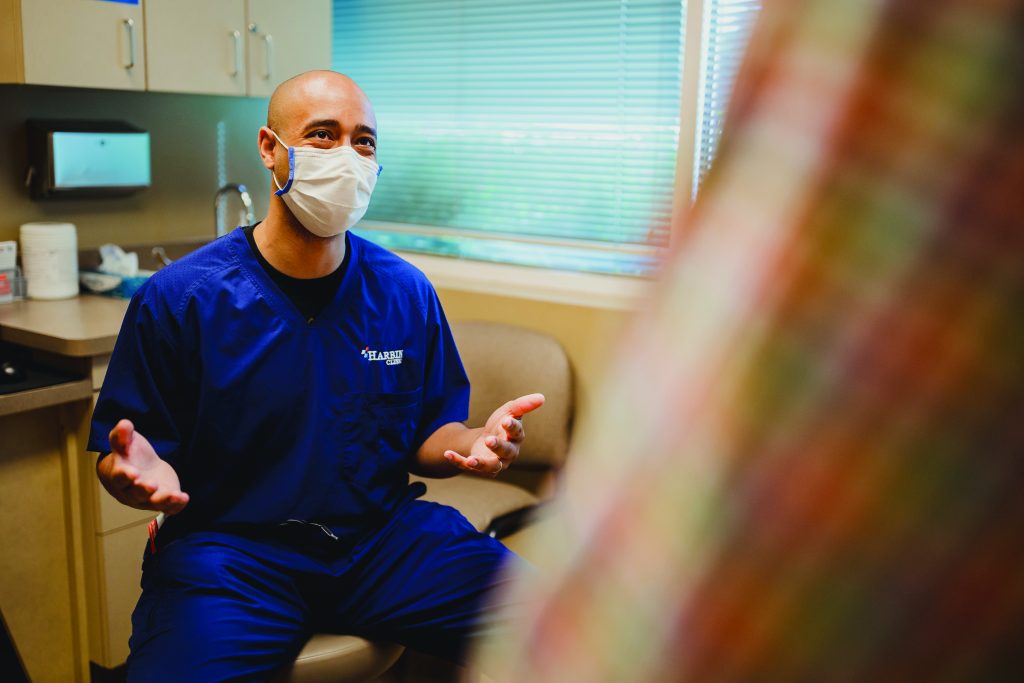
Photos Cameron Flaisch
“Pain is a central cause of keeping people from living the lives they want to live.” That’s the assessment of Dr. Christopher Alexander, physiatrist at Harbin Clinic’s Spine & Pain Management in Cartersville, Georgia. One of the reasons Dr. Alexander decided to subspecialize in pain management was he found that a host of health problems revolved around pain. He says, “Patients tell me chronic pain hinders them from doing what’s important to them, whether that’s cleaning the house or playing golf or tennis, or whatever.” Working in collaboration with other Harbin Clinic specialists, Dr. Alexander is helping to give these patients their lives back.
From pain to purpose
Dr. Alexander’s interest in medicine was piqued after he suffered a back injury as a teenager on a high school football field. He explains, “That experience of injury, treatment and recouperation is something that prompted me to take a closer look at medicine as a career.”
This interest deepened over time. He became heavily involved in community service while a student at Howard University, volunteering at such organizations as Big Brothers Big Sisters. “It taught me how years of neglect of an underserved community can lead to chronic health conditions,” Dr. Alexander says. “I saw how it disproportionately plagues people.” Thanks to those real-world lessons, medicine evolved from an interest to a calling as he began imagining himself taking on the role of an advocate and caretaker for people with chronic medical conditions.
These experiences in his youth and college years eventually helped attract him to Harbin Clinic. “Here, I get to serve patients that don’t have a lot of access to care,” Dr. Alexander says. “Harbin has afforded me the opportunity to help the people who need it the most.”
Physical medicine and rehabilitation
When asked to define the word physiatrist, Dr. Alexander explains, “We’re experts in treating any condition that is functionally debilitating. It has a very broad scope, anything from spinal cord injury to traumatic brain injury.” Working within that broad scope is what drew him into this field. “I’m not just looking at the heart or backs all day. The variety is fantastic, and it keeps the day from becoming monotonous.”
He began focusing on this field in his third year of medical school, when he discovered he loved internal medicine. “I enjoyed neurology and the operative aspects of orthopedics,” he says. “I liked the clinical part, though not the surgical part.” He found that physical medicine and rehabilitation (PMR) was a marriage of all the specialties he liked; it allowed him to get the experience with neurology and internal medicine. He says, “I could be involved with a variety of specialties simultaneously. It was a great fit for me.”
PMR deals with both chronic and acute pain. According to Dr. Alexander, the difference between the two depends on how long the pain is present. In general, if the pain lasts longer than three months, it’s chronic; acute pain is more like an injury that happened recently. “An arthritic knee, for instance, is a chronic condition,” he says, “but if you strain your back moving your friend’s couch, that’s acute.”
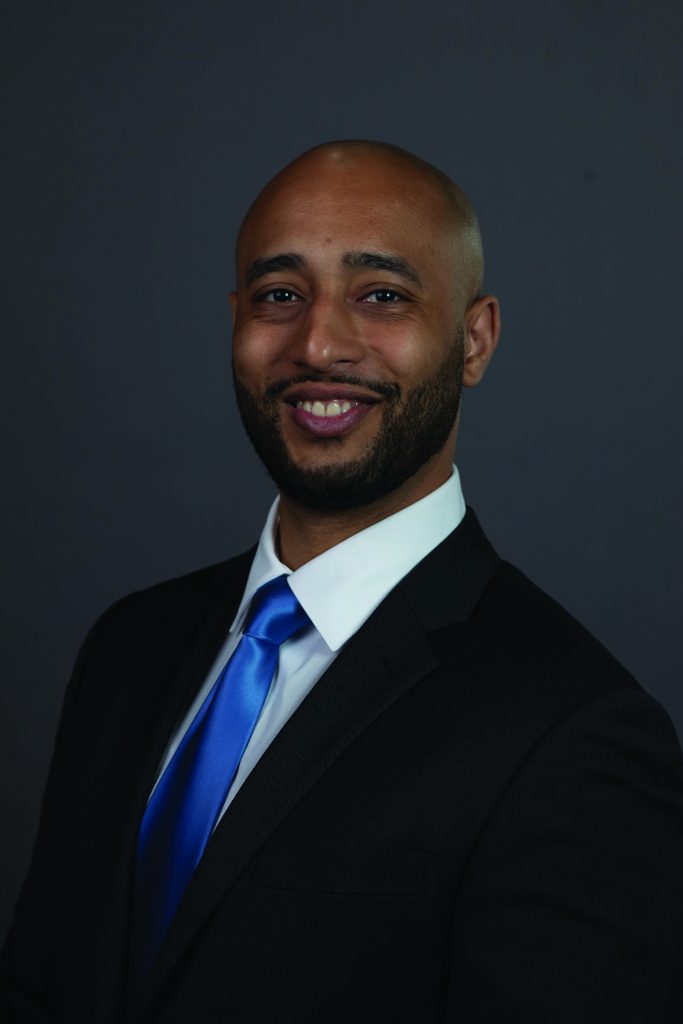
Psychology and physiology
A patient’s chronic pain can have roots in both the body and the mind. Dr. Alexander tells his patients that “there is their physiology—like an irritated nerve—but then there’s the psychosomatic issue, which is important to address, too.” He finds that people who have depression issues, for instance, may have emotional or psychological traumas, making them prone to chronic pain.
Because of the overlap in psychological and physiological causes for pain, Dr. Alexander is a proponent for a holistic, multidisciplinary approach to treatment. “One of the challenges of this field is,” he says, “there’s often a mental health component that doesn’t show up on any X-ray. If we only focus on the anatomy, we’ll miss out on a lot of opportunities to help people.”
Helping patients help themselves
“One thing I’ve come to learn and appreciate about the people of Northwest Georgia is they’re hard workers,” Dr. Alexander says, “They’re not afraid to use their hands to make a living. A lot of that causes a chronic physical wear and tear over decades of manual labor.”
In a long-standing Harbin Clinic tradition, Dr. Alexander educates his patients in how to take care of themselves between clinic visits. “A common message you hear from physicians is: ‘You’ve got to quit smoking and drinking. Continue to exercise. Eat nutritious foods.’ Well, these things are all true,” he says. “Unhealthy habits play significant roles in hindering people’s ability to heal. If your body is not optimized to take care of itself, things will break down. Lifestyle and a proper mindset go a long way toward not only prevention but also in managing chronic pain.”
To learn more about pain management and improving your quality of life, visit harbinclinic.com or contact your primary care doctor for a referral.

